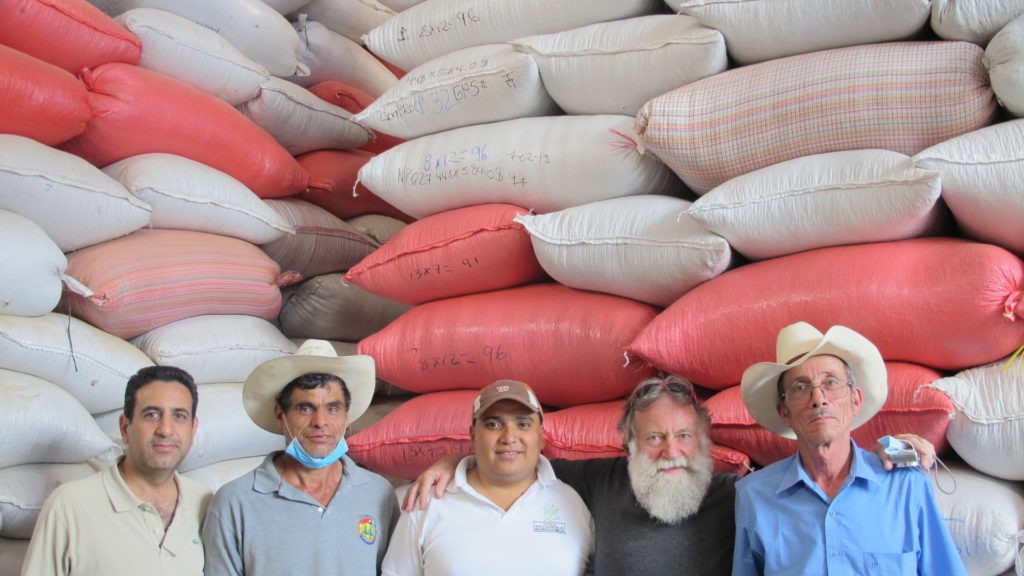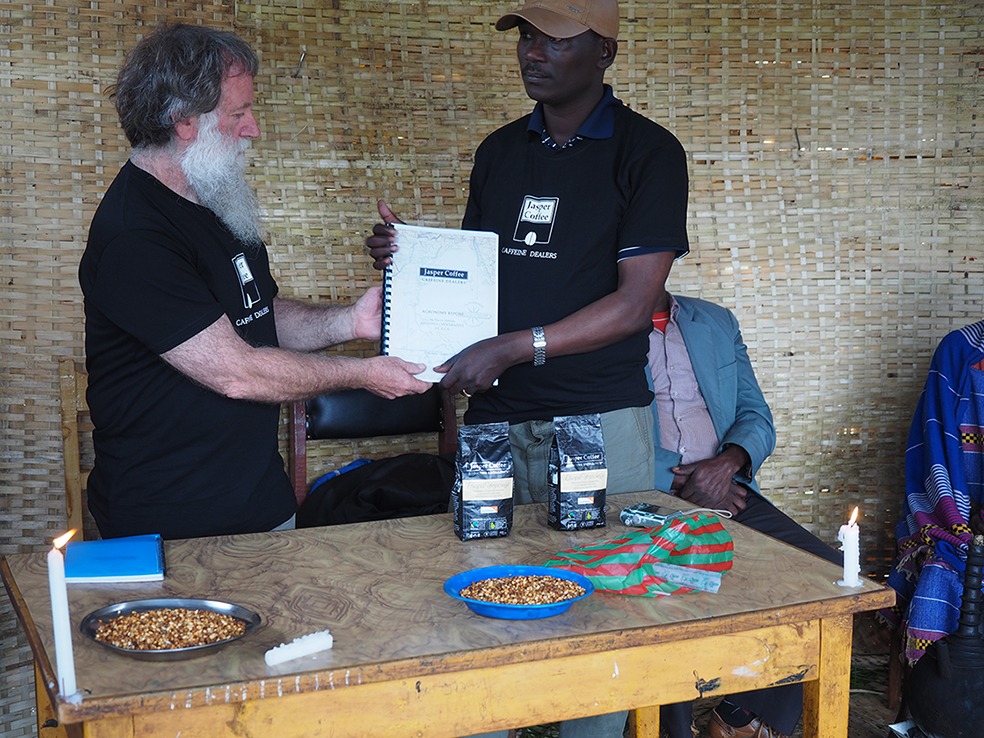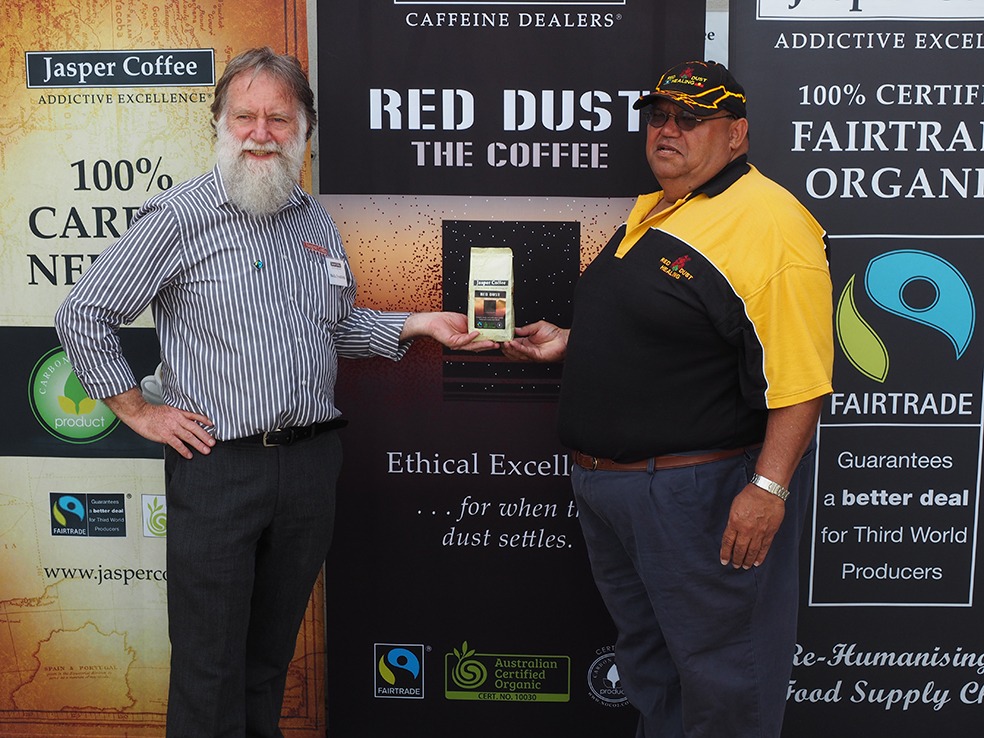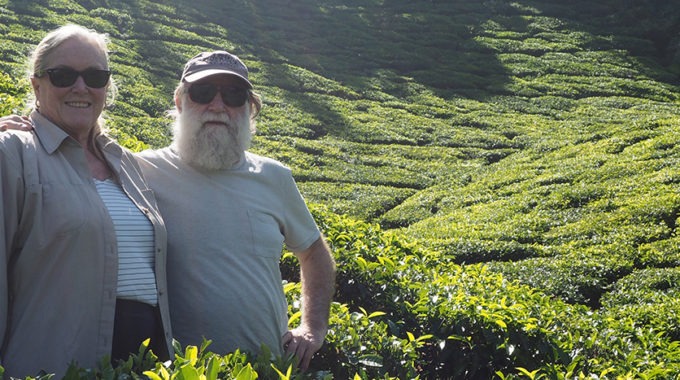Putting the humanity back into coffee
Australian Fairtrade and specialty coffee roaster Jasper Coffee was established in 1989 with the aim to explore the world’s best coffee regions and and bring the best coffee to Aussie consumers. But along the way, founders Merilyn Parker and Wells Trenfield (pictured above) discovered that they could do something much more important than just providing Australian coffee lovers with a top-quality morning pick-me-up – their business could also play a key role in rehumanising the coffee supply chain.
Over the past 30 years, Jasper Coffee has cemented their impressive reputation within the coffee industry through their ethical approach to doing business.
“It really is the premise on which we’ve based our whole business,” Trenfield tells Eativity. “Coffee is one of those strange commodities that relies on everybody along the chain to get it right: from the grower who is planting the seedlings, to the harvesters, the processors, the forklift drivers, the shippers, the importers, the warehouse people. Then it comes to the roaster. The roasters have to get it right. And then we have to get it out to the baristas, and they have to get it right. And then the consumer has to say yes, that’s great.
“We’re talking about thousands of people in that chain. So when we talk about rehumanising the coffee chain, we acknowledge and recognise that coffee is not just an end product. Coffee is actually the people who produce it all the way along the chain.”

To ensure the business is engaging with the people, not just the product, Jasper Coffee has worked to build relationships along every step of their supply chain. This has led them to develop a number of projects in the coffee-growing regions they buy from, which have enhanced the livelihoods of the people who produce Jasper Coffee’s premium products.
Jasper Coffee was the first commercial company to have a partnership with World Vision, which approached the business to ask if they could help a community of people in Ethiopia.
“They could hardly sell their coffee on the local market; they were really quite a mess, in terms of their community,” Trenfield recalls. “And so we worked with World Vision to get them Fairtrade certified and Organic certified. We bought their coffee in, and it was fantastic coffee. So we created a project where we imposed on ourselves a levy for every kilo of coffee that we sold here. And that levy went straight back to the community, to the growers in that Fairtrade co-op.”

Over a seven-year period, Jasper Coffee contributed $98,000 to this community, completely changing the lives of the people within it. This meant they were able to elevate the quality of the coffee, which then allowed them to sell it at a higher price. It also empowered them to make their own decisions and to change the quality of their life, and they are now one of the most sustainable coffee cooperatives in Ethiopia.
Another one of Jasper Coffee’s proud success stories involves a group of women from a Fairtrade coffee cooperative in Peru.
“We were already buying coffee from them, but then we were introduced to some women from within the co-op,” Trenfield explains. “They had been able to change the attitudes of the men, and to convince the blokes, for the first time in history, to transfer the title of land to the women. This meant that the women owned the land, they owned the coffee trees, they owned the sale of the coffee, and they imposed a separate levy above Fairtrade, above Organic, and they called it Cafe Femenino.”

Jasper Coffee was the first to bring Cafe Femenino coffee into Australia in 2005, and it was one of their biggest sellers. This success has transformed the lives of the women.
“The women have respect from the men, and the men work with the women,” Trenfield says. “We were buying a large proportion of their coffee in those early days – more than 50 percent. And now, from the 36 initial women growers who were involved at the beginning, there are 7500 women growers in that project.”
Jasper Coffee also contributes more than just buying the coffee from these communities that includes an additional levy. They also contribute to these communities in other ways, including providing funding for such things as warehouses and water purification programs.
The business also has a project here in Australia, supporting the Red Dust Heelers, a community engagement program for Aboriginal and other Australians with a disability.
Jasper Coffee created Red Dust Coffee, a blend of mix of Colombia, Nicaragua, Sorgaba, Honduras, Mexico, Okapa beans. Using the World Vision model, then then applied a levy on themselves for the coffee, and the funds from this levy then go to the program.

Jasper Coffee is also an industry leader in sustainability. The company is Organic and Fairtrade certified (they were the first Fairtrade licensed commercial roaster in Australia), they’re 100 percent carbon neutral, and they became a Certified B Corporation in 2016.
“In a world where businesses are scrambling to find ways to reduce their carbon footprint and deliver a more sustainable business operation, Jasper Coffee has been compliant and accredited in these arenas for years,” Trenfield says proudly. “It hasn’t been easy – with Fairtrade and carbon neutral, all many consumers could see was that it was costing more for their cup of coffee. And these have also been really big costs to us as a company.
“But our margins have always been predicated on all those extra costs when selling into the marketplace. It’s been a tough journey, but a rewarding one.”
For more about Jasper Coffee and its projects, head to jaspercoffee.com









